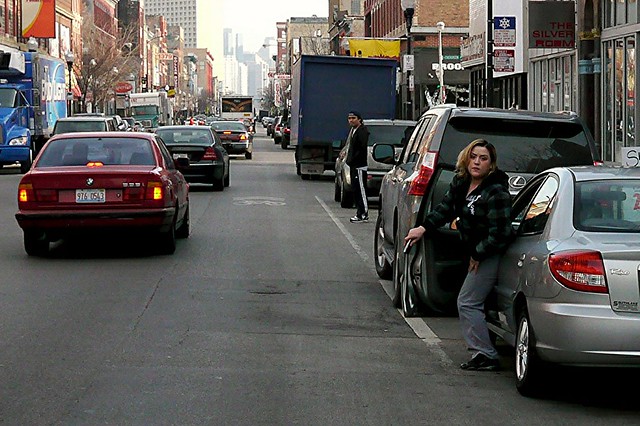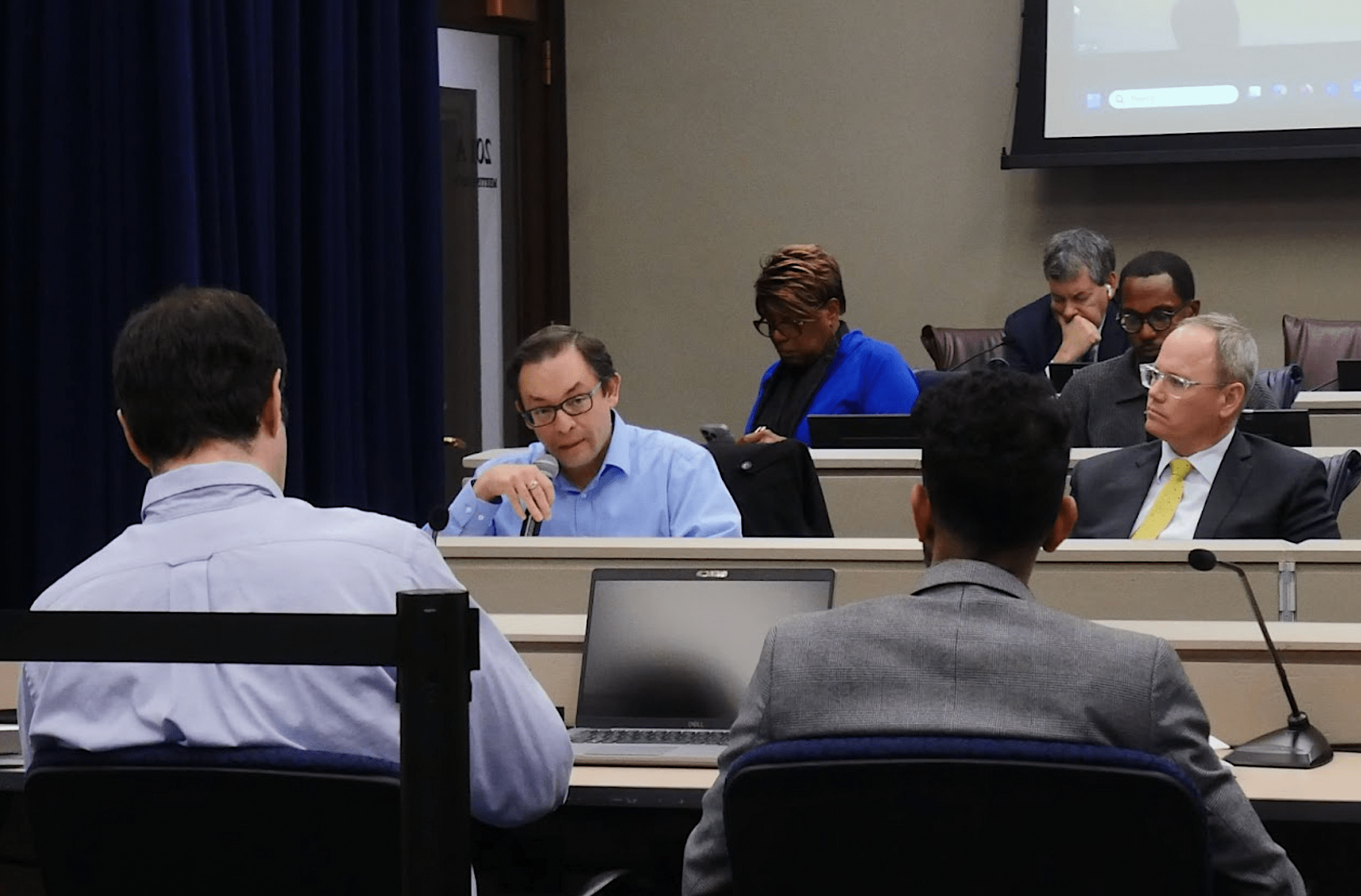When CBS does an exposé on a transportation issue, it’s not always a good thing. For example, there was the 2014 segment where reporter Rob Johnson argued that the upcoming Loop Link project would slow private vehicle traffic to a crawl and was “driving home the point that cars are no longer welcome” downtown. However, the bus rapid transit system launched last December, vehicle congestion along the corridor is no worse than before, and last time I checked there were still plenty of cars in the Loop.
However, yesterday’s CBS segment “Chicago’s Cyclists in Danger” shows that when Dave Savini applies his investigative skills to the right issue, he can help bring about positive change. He does a fine job of highlighting the problems of reckless driving, bad pavement, and vehicles blocking bike lanes – issues we’ve frequently discussed on this site – to a wider audience.
The clip shows footage of private cars and post office trucks, and even Divvy vans and police vehicles, obstructing bike lanes, and forcing cyclists into the travel lanes. “When bike lanes are blocked, cyclists end up in traffic – a danger to them and drivers,” Savini says.
Savini even confronted a postal worker who regularly parks her truck for up to an hour in the Washington Street bike lane, near the CBS office, and she wound up moving the truck. Of course, if there’s a reason why the employee truly needs to park in this spot every day, the USPS and the city’s transportation department should come up with a solution that doesn’t endanger cyclists.
The segment features cyclists Gasper Rivera and Aimee Zimmer, who were both thrown off their bikes when motorists opened their car doors into traffic without looking. Zimmer suffered a traumatic brain injury, which still causes her problems.
Savini discovered that some 311 requests for pavement repair in bike lanes went unfulfilled for months, or even a year. And five years after a cyclist was injured when his wheel caught in a sewer grate on Lawrence Avenue with openings that were parallel to the road, and received a settlement from the city, the same hazardous grate is still in place.
Most infuriating, CBS found that the Chicago Police Department has issued a mere 20 tickets for bike lane parking in all of 2016. That’s fewer bike lane violations than many of us typically encounter on a single ride to work.
The only sour note in the otherwise-excellent segment was the banter between Savini and his colleagues in the newsroom after the clip was shown. “The other question is, what do they expect?” said Rob Johnson. “They cut a lot of streets from four lanes to two.” Presumably he was referring to the travel lane conversions on Washington and Madison streets for Loop Link. The CBS headquarters is located at Washington and Dearborn streets.
"There's very little room downtown now," Savini agreed.
Sure, there’s less space for private vehicles on Washington and Madison now (although the vast majority of downtown roadways are still dominated by cars.) But even before the BRT system was created, about half the people who traveled those two streets in vehicles were on buses. The dedicated bus and bike lanes simply provide additional capacity for the more space-efficient travel modes, helping to move people – as opposed to cars – across the Loop more efficiently.
That pothole aside, kudos to Savini for leaving behind CBS’s usual windshield perspective for an revealing segment on the dangers that people biking in Chicago face every day.





